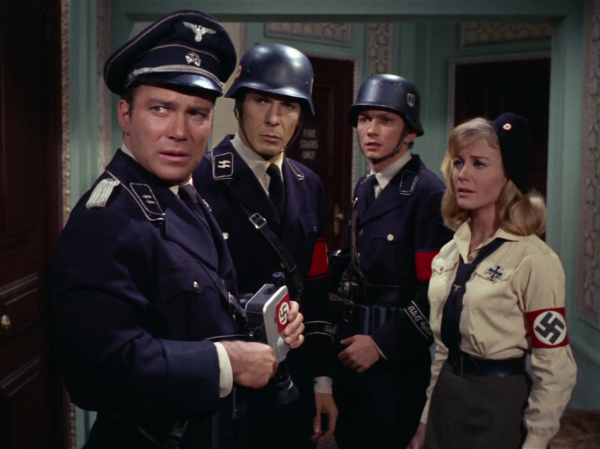There Were No “Good Guys” In World War Two
Many of us flinch when we see Nazi imagery pop up whenever there is political strife. It is not just that we detest neo-Nazis / white supremacists / white nationalists, who seem to specialize in forming cliques and driving normal people away, but also that we have doubts about Hitler himself.
After all, in his hands Germany was defeated in a costly war, her women raped and her cities bombed into ruin. There were also Jewish people left in German custody who, through neglect or mistreatment, perished en masse. Many of us see this as the opposite of what our people stand for, which is conquest without cruelty and establishment of lasting social order.
In addition, National Socialism had some fatal flaws. It depended on dictatorship and near-totalitarian conditions. It stood in the way of restoring aristocracy. Worst of all, perhaps, it refused to leave behind modernistic thinking, basing itself in both socialism and the idea of treating people as equal units to be stamped with official dogma and made into perfect citizens.
No, leave me out of the HitLARPing, please. It just makes me ill. Not all lost causes are bad, but the best lost causes are those which could have won and endured, not those which were unstable and prone to self-destruct even if their enemies had fallen at their feet.
But with the same spirit of honesty that we criticize Hitler, we should also acknowledge that there were no good guys in WWII. The Soviets were genocidal idiots; the Americans nuked civilians; the British delighted in fire-bombing citizens. On top of that, the Allies were an ecological disaster:
German munitions were dumped in the sea on the orders of Allied forces following their victory over Adolf Hitler in 1945. The US, Britain and France also dumped large amounts of weaponry off their coasts.
Although the majority of the German weaponry dumped was conventional (explosives or fire ammunition), about 40,000 tons contained chemicals including mustard gas, phosgene – a chemical weapon that gained infamy during World War I – and arsenic.
We have fallen so far that terms like “incendiary” for ammunition are now baffling to most readers. You have to distill it to a simple term, like they see on Taco Bell sauce packets. It’s “fire ammunition” now in Democracy-speak.
The war ends, and the victorious Allies — aware of how the voters are tired of the whole thing and want it to just go away — avoid the costly task of disposing of munitions by instead dumping them into the Baltic Sea. Out of sight, out of mind, just like every other pollution control under democracy.
Seventy years later, fish are mutating thanks to this massive dump of toxic stuff (this is unrelated to the term “toxic dump” as used in the context of Taco Bell):
They believe the cancerous growths found on the species known as the common dab could be linked to the estimated 1.6 million of tons of armaments that were dumped at the bottom of the Baltic and North Seas at the end of World War II.
As usual, in democracy the safest bet is to sweep the problem over the rug and to pass it on to future generations. Even if you know the disaster will become a problem eventually. In fact, certain future problems are a great idea to create. That way, you have an excuse to seize power in the next dozen generations as well as the current one.










